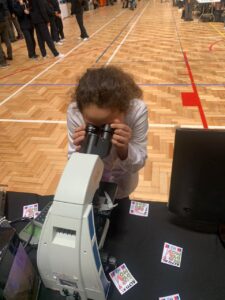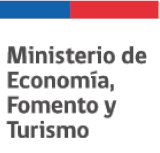
 As part of the celebration of Science Month, the Fisheries Development Institute (IFOP) successfully participated in the traditional Science and Technology Fair organized by the San Francisco Javier School of Puerto Montt, held on Monday, October 20.
As part of the celebration of Science Month, the Fisheries Development Institute (IFOP) successfully participated in the traditional Science and Technology Fair organized by the San Francisco Javier School of Puerto Montt, held on Monday, October 20.
The event, traditionally held every year, brought together a large community, including students from 3rd grade to 12th grade, as well as various science-related groups and invited institutions. The fair gathered around 200 attendees, including students, teachers, and parents, all interested in learning about the different topics in science and technological innovation presented.
Focus on Mussel Farming and the Threat of Didymo
Our institute was represented by researcher Mario Ortiz and researcher Macarena Herrera, who led a stand that captured the audience’s attention by addressing two key topics for the region:
- The issue of the exotic invasive species Didymosphenia geminata (Didymo), explaining the risks and the importance of monitoring and controlling it in freshwater ecosystems.
- Mussel farming (Mytilus chilensis), where details were provided about seeding techniques, different types of nets, and collectors used for mussel seed capture. Connection through a QR code to the interactive platform “Semilla Endémica.”
This outreach activity has become a valuable opportunity for the educational community to interact directly with applied research. The active participation of students and the interest shown by parents reinforce IFOP’s commitment to knowledge transfer and the promotion of a local scientific culture.
In addition to the exhibition, the IFOP team encouraged open dialogue with students, who asked questions about the environmental impacts of invasive species and the role of aquaculture in sustainable territorial development. These discussions helped children and young people understand the relevance of scientific work in protecting marine ecosystems and managing natural resources responsibly.
The event also facilitated exchanges between researchers and teachers, generating connections that could lead to future collaborations in environmental education. The organizers highlighted the importance of having institutions like IFOP, which actively contribute to strengthening scientific education and bringing technical knowledge closer to the school community.
In this way, the participation of the Fisheries Development Institute in the fair reaffirms its commitment to scientific outreach and environmental education—essential pillars for inspiring new generations and fostering greater public awareness about marine conservation and the challenges faced by the southern regions of the country.
Press related links:




